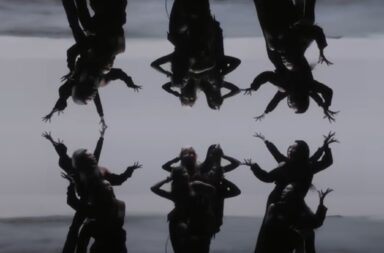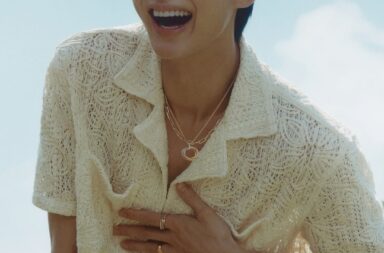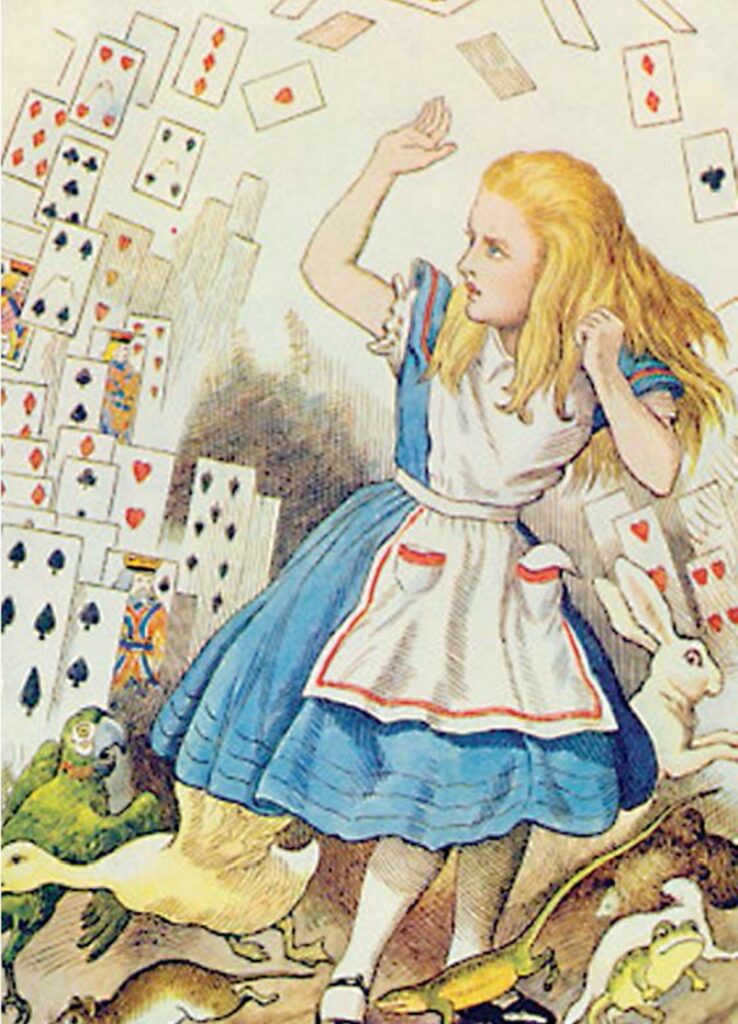
One word, Alice. This blonde-haired, blue pinafore young Victorian girl is one of the most commonly referenced icons in popular culture. While many recognise Alice from Disney’s 1951, 2010, and 2016 adaptation, it is less known as the brainchild of Lewis Carroll, a British writer. In fact, Carroll wrote two Alice books — Alice’s Adventures in Wonderland and Through the Looking-Glass, and What Alice Found There.
Although written 150 years ago, Alice remains a timeless classic. As part of popular culture, K-pop does not shy away from extracting recognisable characters and symbols from the Alice books and films. But why is Wonderland such an irresistible trope within K-pop? Is it the food that warrants Alice to eat and drink them? Is it Alice’s colourful companions — the White Rabbit, Mad Hatter, Cheshire Cat, Tweedledum and Tweedledee? Or is it falling down the rabbit hole? Well, none of that. Instead, the crux of the Alice books largely concerns youthfulness while also touching on self-identity, maturation, and exploration.
For Carroll, young Alice in the books embodies eternal youthfulness, as inspired by the real Alice, Alice Liddell. Writing in the Victorian age, many writers highly romanticised the idea of childhood and Carroll was no exception. With his apparent fascination with young girls, writing Alice’s Adventures in Wonderland specifically for Alice Liddell can be seen as a way to eternalise Alice’s youth for himself through crafting Alice as a character that resists maturity.
Likewise, the K-pop industry highly values childhood and youthfulness. In the case of trainees, it is not uncommon for companies to cast children as young as twelve. Like Carroll, the industry recognises the fleeting yet valuable nature of youth. Moreover, youth is also a common concept that has been tapped on by many artists like BTS’ The Most Beautiful Moment in Life and TXT’s ongoing series. In the same vein, a piece of MV eternalises a group’s once youthful image. While many debut with a pure and cute image, most refrain from doing these concepts again once they have passed the age to do so. In this case, this period of youthfulness is identifiable in The Boyz’s “D.D.D”, IU’s “Twenty Three”, and Ateez’s “Wonderland”.
The Boyz’s retelling of Alice’s Adventures in Wonderland in “D.D.D” follows the crux of Alice’s chronological journey from the real world and into Wonderland. Taking place away from home and in vacant New York, the members explore the city by following the White Rabbit. He drops clues for the members, namely three items — his signature pocket watch, the “drink me” potion bottle which shrinks Haknyeon’s food, and a glowing rope that leads the rest into Wonderland.
As New sings, “As if I was led, along the wind blowing to me, we let’s move”, while they themselves fail to understand the situation, there is an invisible innate push, like “the wind”, to follow the White Rabbit. They grow curious, just as Alice is in Wonderland, wanting the rabbit to “Tell [them] more” as he guides them through unfamiliar New York. To gather in Wonderland, Alice’s fall down the rabbit hole is adapted to two instances — entering an underground metro station and a slide. To this point, the members are often caught with puzzled looks on their faces, trying to make sense in a nonsensical and everchanging world, mirroring Alice’s initial confusion in Wonderland.
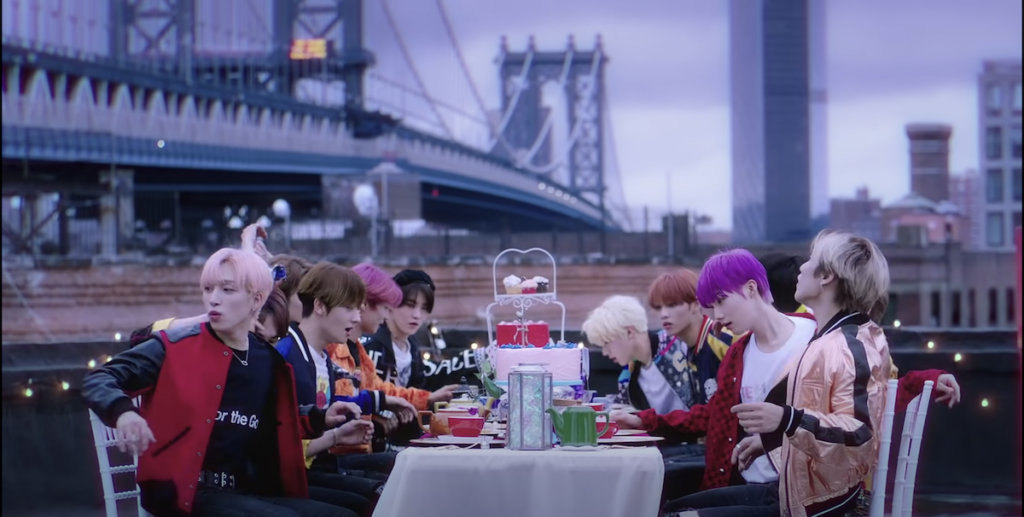
Finally, the last scene atop a building with a table filled with food, mirroring the Mad Hatter’s tea party, marks Wonderland, or as The Boyz calls it: a “hidden paradise” but “a world where everything unrealistic will come to life”. While the tea party in Carroll’s creation mocks stringent Victorian social norms, The Boyz are rewarded for their maturity with a feast and fireworks. Concurrently, by extension, the upbeat nature of this dance song itself is celebratory. Interestingly, The Boyz also acknowledges the dreamlike state of Wonderland by tying it in with their album name “Dreamlike”. Dream is also mentioned in the lyrics:
Above the picturesque horizon
I’m looking at your overwhelmed eyes
Jumping over the limits
Our dreams are continuing
Like a dream, they know that they have to wake up. At the same time, signalling a change in concept, as they took a 180° shift in their next album, “Reveal”, with a dark, mature concept.
In an attempt to shed her “nation’s little sister” image for one that is mature and age-appropriate, IU’s “Twenty Three” addresses Alice’s biggest question — “Who in the world am I?”. In the book, Alice refers to her self-identity as a “great puzzle”. Similarly, IU resists the singular definition of what it means to be twenty-three by taking on different roles to try and piece herself together, all while her lyrics echo her call for an answer.
Pretend to be a fox that pretends to be a bear
That pretends to be a fox
Or a completely different one
Which one?
Choose only one whatever it is
While Wonderland only exists in her dreams, in many instances, IU still succumbs to societal expectations. In particular, while she acknowledges that women have to doll up to look presentable, she reluctantly tries on various lipstick, much to her dislike. At the same time, battling bodily changes while bridging the gap between childhood and adulthood throws her into confusion. She goes back and forth, struggling to conclude who she is in Wonderland, an adult world that operates differently from her own.
I wanna be a child forever
No, I want to be a moist woman
Yes, I will live silently as death
No, I will turn everything inside out
Try to guess
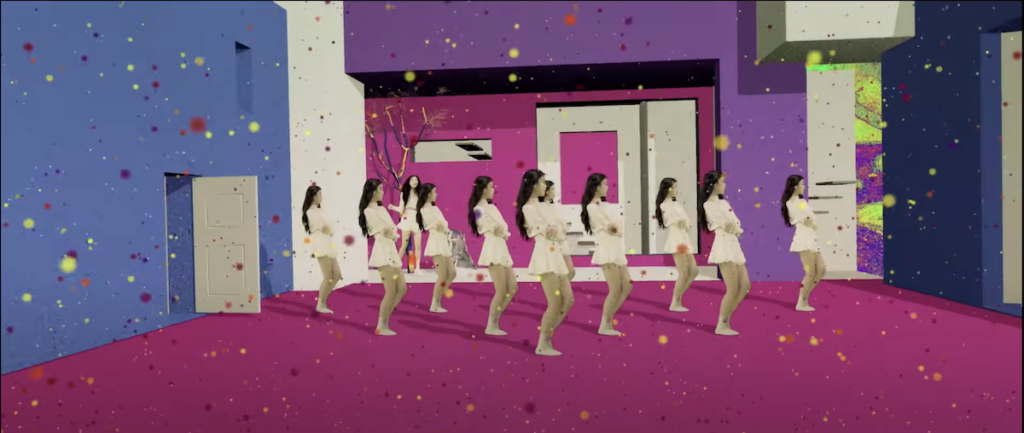
Ultimately, despite appearing to acknowledge the many facets of her identity, IU, just like Alice, exists in a masculine world. Although it is Alice’s Wonderland, Alice remains a female character who lacks self-authority. Many times, Alice is met with aggression when she seeks guidance from the numerous male characters in Wonderland. This is not to forget that Carroll, a male writer, also “controls” Alice to his liking.
In parallel, female idols exist in a patriarchal industry and are often held to higher standards in comparison to their male counterparts. With the key to their debut in the patriarchal hand, it is not uncommon to exploit themselves and eventually destroy the idea of an innocent girl to debut. Just like the riddling quality of Wonderland, female idols, too, might not fully comprehend their situation but simply comply all for their ticket to stardom.
On the other hand, Ateez’s “Wonderland” is a darker retelling of the first Alice book. For Ateez, Wonderland is an ideal. Released in their first studio album when they were on a meteoric rise, this piece depicts their goal for the future.
Ateez’s “Wonderland” begs viewers to have “all eyes on [them]”, as Hongjoong commands their attention right away. They look to break boundaries to find their own path where “We gonna find [a] new world to be mine”. Like Alice, in a bid to confront the anxieties of the big world, Ateez calls for a revolution of their own, denoted by the flags and army-like marching band.
Okay, the door for truth is opening, in front of there
Like destroying it we on fire
You gonna stop here?
There is here what you’ve really looked for oh
Although you can’t come back
Oh, we must going on
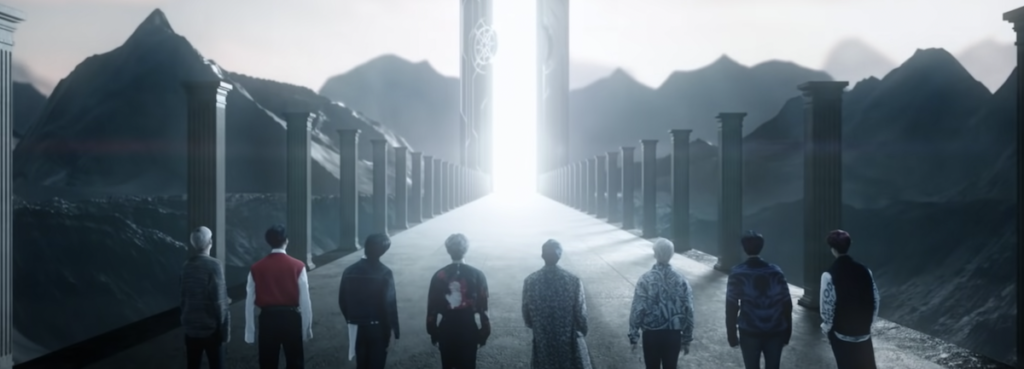
Ateez recognises that the only way to grow is to move forward strategically, by finding “[t]he island that follows the map”. In a similar fashion, to gain control in Wonderland, Alice exhibits growth by learning from her previous mistakes. But unfortunately for Alice, a child’s logic is nonexistent in nonsensical Wonderland. Luckily for Ateez, they are at the forefront of their journey. While at the same time, unlike Alice, they vouch to keep their youthful vigour to their advantage with their reference to Peter Pan — “Immature like Peter”. They challenge themselves, “You gonna stop here?”, while warning others to “keep [to their] pace” as the door to escape Wonderland eventually opens. Though their victory is not celebrated with a feast like The Boyz, they are rewarded with something much bigger — proudly regaining their own flag and independence.
Carroll’s Wonderland clearly withstands the test of time with K-pop’s inexhaustible references and interpretation of this well-loved creation. While many remember the books and films for their colourful elements, these pieces remind us that despite their wonder, there are countless underlying themes that mirror our society.
(Alice’s Adventures in Wonderland by Lewis Carroll (1865), Seoulspace, Shethepeople, The Guardian, Victoria and Albert Museum. Youtube [1][2][3]. Lyrics via Lyrics Translate and Genius. Images via Big Hit Entertainment, Times Colonist)

